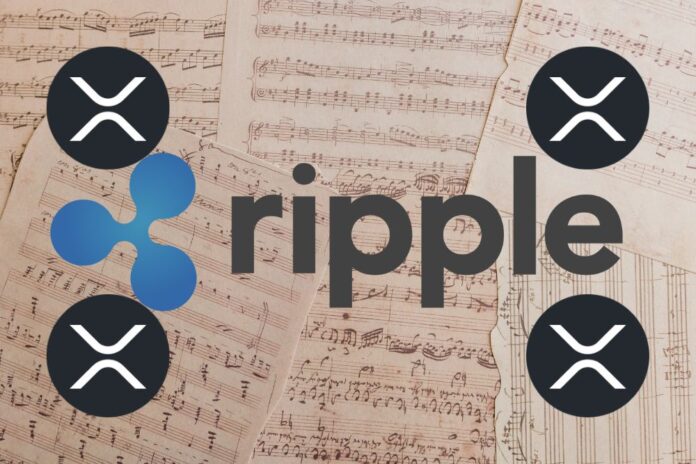The recent ruling in SEC v. Ripple has sent shockwaves through the crypto community and beyond, sparking both excitement and apprehension.
This pivotal moment, characterized by a nuanced distinction between Ripple’s institutional and secondary platform sales, has ignited a crucial debate about the application of securities laws to digital assets. As the dust settles, it is evident that the Ripple effect has irrevocably altered the digital asset landscape, bringing Ripple closer to the mission of disrupting the banking system.
🚀 #Ripple's #Metaco joins forces with #IBM to revolutionize crypto security! 💼💎
Introducing the Offline Signing Orchestrator, a game-changer in cold storage tech for digital assets. 🛡️🔒
Stay ahead of the crypto curve with this groundbreaking collaboration! 🌐🔗 pic.twitter.com/Jtxqq6cesz
— Collin Brown (@CollinBrownXRP) December 6, 2023
Judge Torres’s Ruling and Its Implications
Judge Torres’ July 13th summary judgment stands as a testament to the evolving nature of digital assets. Her meticulous differentiation between Ripple’s direct institutional sales, deemed securities transactions, and those conducted on secondary platforms, deemed security, has challenged the SEC’s broad interpretation of the Howey test.
This legal earthquake has opened a fissure in the traditional framework, forcing a reevaluation of how existing regulations apply to the burgeoning world of digital assets.
Read Also: Ripple and SEC Could Reach Settlement Agreement On XRP Lawsuit Today. Here’s why
Ripple’s Strategic Maneuvers
Emboldened by Judge Torres’ decision, Ripple has further solidified its position through two strategic maneuvers:
Denial of Interlocutory Appeal: The SEC’s attempt to overturn the ruling regarding secondary platform sales was met with a resounding denial, paving the way for innovation and growth within the secondary market. This decision has instilled a sense of confidence in the crypto community, encouraging further development and adoption.
Dismissal of Charges Against Individuals: Recognizing the potential for protracted legal battles, the SEC strategically dismissed charges against Ripple executives. This calculated move has accelerated the legal process, potentially influencing future regulations and expediting Ripple’s journey toward a definitive resolution.
We are on twitter, follow us to connect with us :- @TimesTabloid1
— TimesTabloid (@TimesTabloid1) July 15, 2023
Nuanced Perspective and Legal Precedent
The Ripple case has exposed the complexities of applying the Howey test to the dynamic environment of secondary markets, where buyer-seller relationships are less direct and investment contracts may be less evident. Judge Torres’s keen distinction underscores the importance of considering the specific facts and context of each case, rather than resorting to a rigid and inflexible approach.
This nuanced perspective aligns with the recent ruling in SEC v. Terraform Labs, where Judge Rakoff similarly acknowledged the varying nature of secondary market transactions. These seemingly contradictory yet complementary decisions highlight the need for a more flexible and dynamic regulatory framework that can adapt to the ever-evolving digital asset ecosystem.
Future Implications and Ripple’s Influence
As Ripple marches onward through the damages phase and potential appeals, its impact will reverberate throughout the crypto landscape. Cases like SEC v. Coinbase and SEC v. Binance, currently navigating the legal system, may yield diverse outcomes, further shaping the regulatory terrain.
Read Also: Judge Torres Sets Briefing Schedule For XRP Lawsuit. Here’s the Case Could End
Conclusion and Market Impact
While Bitcoin and Ethereum exhibit promising bullish signals, Ripple navigates a critical juncture. Facing a potential 5% drop, its immediate future remains less certain.
However, the Ripple case serves as a powerful reminder of the dynamic nature of the digital asset ecosystem and the potential for disruptive change.
As the market continues to evolve, Ripple’s victory stands as a catalyst for further innovation and a more inclusive regulatory framework for the digital asset space.
The Ripple case stands as a pivotal moment in the digital asset revolution. It has opened crucial discussions about the future of cryptocurrencies and their interactions with traditional securities laws. While the path forward remains uncertain, one thing is clear: the landscape is shifting, and Ripple’s victory stands as a testament to the growing recognition of digital assets as a distinct and legitimate investment class.
Follow us on Twitter, Facebook, Telegram, and Google News


